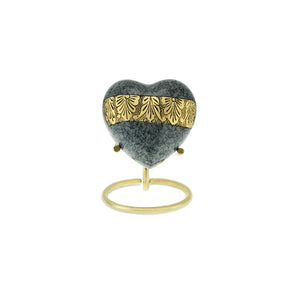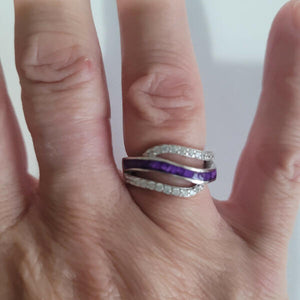Support after a bereavement- how to help a friend

Giving support after a bereavement is not easy. It can be hard to know what to say, and when to say it. Here are a few guidelines that might help you to support a friend after the loss of a loved one.
There is no right way to grieve
Everyone copes with the loss of someone in a different way and coming to terms with a bereavement is a process that takes time. Grief can affect people in different ways. Some people want to talk and share it, while others may bottle it up inside. Respect the way in which your friend is dealing with their grief.
Let them know you care
After learning that a friend has lost a loved one, do give them a call and express your sympathy. Initially, many people are in a kind of shock and do not respond. However, later they will recall that you were there in their saddest moment. Don't try to talk much, unless they want to. Simply let them know that when they want to talk, you will be there still. Also, let them know that if they need anything, they can count on you.
Giving support after a bereavement in times of COVID
With our present pandemic situation coping with grief can be even harder. Giving someone a hug can help more than words sometimes. But, right now hugs are out, and so we need to find other ways to give our support. A short WhatsApp, message, or phone call can reveal if your friend is coping alright. If you don't receive a reply try again. Be prepared to listen and do not be afraid to ask how they are feeling and coping. Do not try and avoid the subject, but equally do not insist that they talk about their loss.
Suggest sources of support after a bereavement
People who are not coping well with a bereavement may not openly ask for help. You might want to suggest that they get in touch with a bereavement support group. Here are some examples
https://www.supportline.org.uk/problems/bereavement/
http://www.aftering.com/grief-support-uk/
https://www.nhs.uk/service-search/other-services/Bereavement-support/LocationSearch/314
https://slowgroup.co.uk/uk-bereavement-support-organisations/
Many of these offer online support. Some people find it easier to express their emotions to a stranger than to a friend. They can also suggest other options that might help your friend find the help they need.
Look out for danger signs
Of course, after losing a loved one it is natural to feel sadness, loneliness and even despair. However, if your friend shows signs of withdrawal, difficulty coping with everyday tasks, or is drinking excessively or taking drugs, these could be signs that they are depressed. It can be hard to differentiate between depression and grief as many symptoms like inability to sleep, expressing self-blame, and a lack of interest in life, may overlap. Depression is a mental illness that can be treated so if you suspect that your find is exhibiting any of these symptoms you should encourage them to visit their GP.
When to seek help
Without treatment, depression can develop into thoughts of suicide. If your friend becomes increasingly isolated, expresses thoughts of self-harm, worthlessness, or exhibits self-destructive behaviours you must seek help for them. Others signs of suicidal thoughts can include a change to a calm happy period during which they are preparing for their death by giving away treasured items and saying goodbye to people. Look for signs of stockpiling tablets or an increased interest in death.
If you feel that your friend is suicidal take them to their GP, to a hospital, or call 111. You can get advice from the Samaritans on 116123. If they are actually trying to end their life call 999.







